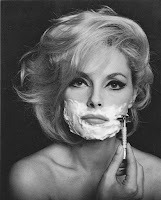5 Quotes:
- " Gender is constructed by every socializing agent and force in society: parents, teachers, the media, religion, and so on" (Basow and Basow, 1992)
- "After an egalitarian peak in 1994, gender attitudes fell until the end of the century. Two of the questions show a moderate resurgence since 2000, one has changed little, and the fourth has continued to decline in this century. Nevertheless, the overall patterns clearly break into two broad eras: a uniform trend toward less traditional gender roles during the 1970s and 1980s, but only small and shifting changes since the mid-1990s" (Cotter, Hermsen and Vanneman, 2011)
- "Children learn at a very early age what it means to be a boy or a girl in our society. Through myriad activities, opportunities, encouragements, discouragements, overt behaviors, covert suggestions, and various forms of guidance, children experience the process of gender role socialization. It is difficult for a child to grow to adulthood without experiencing some form of gender bias or stereotyping, whether it be the expectation that boys are better than girls at math or the idea that only females can nurture children. As children grow and develop, the
gender stereotypes they are exposed to at home are reinforced by other elements in their environment and are thus perpetuated throughout childhood and on into adolescence (Martin, Wood, & Little, 1990). " (Witt, 2015) - "Because I am female, I am expected to aspire to marriage"(Adichie, C. 2013)
- "The problem with gender is that is prescribes how we should be, rather than how we are"(Adichie, C. 2013)
- "We raise girls to see each other as competitors - not for jobs or accomplishments, which I think would be a good think - but for the attention of men"(Adichie, C. 2013)
- "We priase girls for virginity, but we don't praise boys for virginity" (Adichie, C. 2013)
- Adichie, C. (2013). We Should All Be Feminists. [video] Available at: https://www.youtube.com/watch?v=hg3umXU_qWc [Accessed 26 Jan. 2015].
- Witt, S. (2015). Parental Influence On Children's Socialization to Gender Roles. [online] Cla.calpoly.edu. Available at: http://cla.calpoly.edu/~bmori/syll/311syll/Witt.html [Accessed 29 May 2015].
- Cotter, D., Hermsen, J. and Vanneman, R. (2011). The End of the Gender Revolution? Gender Role Attitudes from 1977 to 2008 1.American Journal of Sociology, 117(1), pp.259-289.
- Basow, S. and Basow, S. (1992). Gender. Pacific Grove, Calif.: Brooks/Cole Pub. Co.
5 locations/places:
- Public restrooms
- Homes
- Outside/Streets/town
- Newspapers/Magazines
- T.V/News reports
- Live Performances
5 Websites:
- https://www.boundless.com/psychology/textbooks/boundless-psychology-textbook/gender-and-sexuality-15/gender-414/gender-and-sociology-296-12831/
- http://www.open.edu/openlearn/body-mind/proper-men-proper-women-gender-roles-contemporary-uk-society
- https://www.youtube.com/watch?v=QthMrCqspww
- https://www.youtube.com/watch?v=ujGqiZIarAY
- https://www.youtube.com/watch?v=RLEzImJQ-O0
- http://picslist.com/tags/rights
5 relevant/inspiring images:
5 Sketches:













